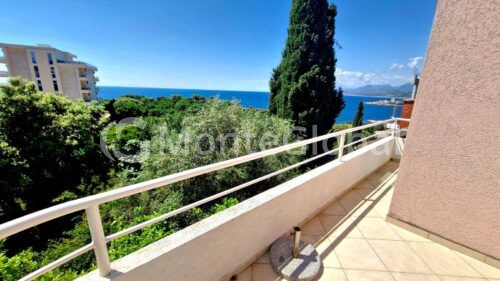Property Tax in Montenegro
Published

Property tax in Montenegro: What buyers and owners need to know
Montenegro, as one of the most attractive countries for buying real estate in Europe, attracts attention not only for its natural beauty, but also for its relatively low taxes. For those who are considering investing in real estate in this country, it is important to understand the tax system.
Basic property taxes
- Tax on the purchase of real estate
When buying a property in Montenegro, the buyer is required to pay a one-time transfer tax. Since January 1, 2024, the tax scale has become progressive. When buying a property worth up to €150,000, the rate will remain the same. If the property price is from €150,000 to 500,000, you will have to pay a fixed tax of €4,500, as well as 5% of the amount over €150,000.
- Who pays: The buyer.
- Basis: The valuation of the object specified in the purchase agreement, but not below the market value determined by the local tax authorities.
An exception is the purchase of real estate from a developer if the property is registered as new. In this case, the purchase is subject to VAT (20%), which is included in the price of the property.
- Annual property tax
Property owners are required to pay an annual tax.
- Tax rate: From 0.25% to 1% of the cadastral value of the property.
- Influencing factors:
- Location of the property.
- Type of real estate (residential, commercial).
- The market and infrastructure of the region.
- Who pays: Property owners.
This tax is paid to local authorities (municipalities), and the funds are used to develop the region's infrastructure.
Tax payment procedure
- After the purchase of the property, the buyer must submit a declaration and pay the tax to the local tax authorities within 15 days.
- The deadline for paying the annual tax is usually set before the end of the calendar year.
- The tax can be paid either in a lump sum or in installments.
Liability for non-payment
Late payment of taxes may result in fines and penalties. For foreign citizens, it is important to take into account the need for timely registration of an object with the tax authorities.
Advantages of Montenegro's tax system
- Relatively low tax rates. For example, the property tax rate is lower than in most EU countries.
- No luxury tax. In Montenegro, there are no increased rates for properties with a high market value.
- Transparency of the system. The procedure for calculating and paying taxes is simple and straightforward.
Investment attractiveness
Thanks to the favorable tax system, Montenegro is becoming an attractive destination for foreign investors. Low taxes on ownership and transfer of ownership create additional incentives to purchase real estate.
Conclusion
Buying a property in Montenegro is not only a chance to enjoy the magnificent nature and high quality of life, but also a profitable investment decision. By understanding the tax system, you can avoid unexpected expenses and make the process of owning real estate as comfortable as possible.

